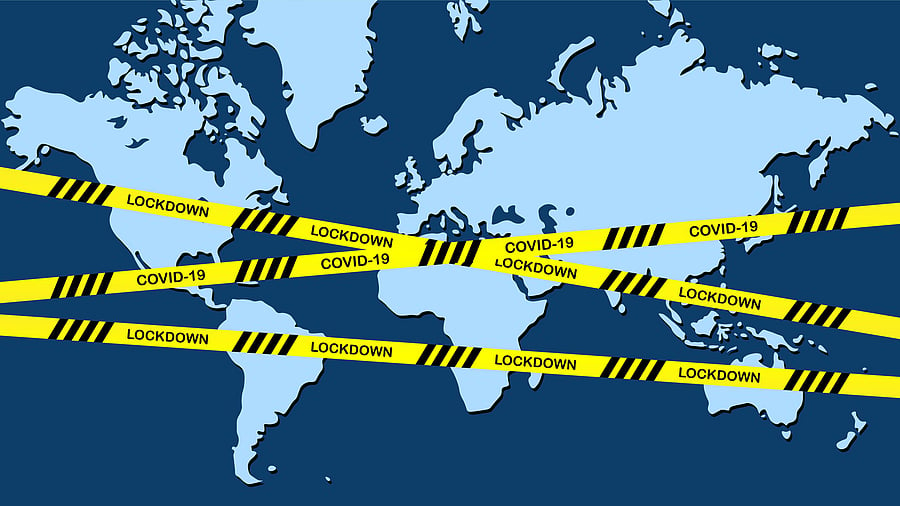
Image for representation.
Credit: iStock Photo
On May 14, the director general of the World Health Organization (WHO) submitted a report to be part of a provisional agenda of the 78th World Health Assembly (May 19 to 27). This report is the outcome of the Intergovernmental Negotiating Body formed by the WHO in 2021 to draft and negotiate a WHO-linked agreement on pandemic prevention, preparedness, and response. This draft came about in quick time, raising concerns about procedural democracy.
On May 20, the World Health Assembly adopted a resolution for a pandemic agreement. The draft agreement will be open for signing only after its Annex (which is to be negotiated) is adopted by the World Health Assembly. A working group was formed by the WHO to develop and approve the further additions to the draft agreement. In terms of a timeline, the agreement is expected to be adopted only in 2026, and it will be open for another 18 months thereafter.
There are several reasons why this treaty must have been rejected. The WHO is avoiding a public discussion/debate, through speed and stealth, even though it touches individual lives across the world in an unprecedented way. It endorses profit-oriented pandemic-related products, and not the science of disease control. It arms a surveillant State to regiment citizens into complying with directions given by a handful of individuals, who are neither elected nor accepted. It sweeps the entire global conditions under a ‘One Health Approach’, without answering the questions raised about the liability, accountability, and responsiveness of the current food, health, and economic systems.
This draft agreement lays the ground for a massive expansion of the pharmaceutical hospital emergency industrial complex, through the instruments of pathogen access and benefit sharing system, the global supply chain and logistics network, and the financial coordinating mechanism. Unlike other international conventions, the Conference of the Parties for this agreement is subservient to the WHO director general. When it includes relevant stakeholders, it is private, non-State, multinational organisations, linked to it financially.
For India’s health sector, this draft agreement should not be acceptable, given its subtle impositions on sovereignty and turning nature into commercial products. India has never accepted patents on life forms which are part of nature and the balance in diversity within species and among species.
Primarily, this is a changed text, from the previous versions, especially in the aftermath of United States President Donald Trump pulling the US out of from the WHO. Through this report, the WHO has been pushing for powers that can empower it to declare pandemics, impose emergency conditions, mandate treatment methods, and constrict national governments from taking contextual, independent, and democratic decisions. It also appears to be preparing the ground for vaccine companies to operate with impunity, access data, overcome liability, and make profits.
The WHO is trying to push singularity in therapy, mandating agency and management document. It seeks wider powers under ‘whole-of-the-government’, and ‘whole-of-the-society’ approaches, and a ‘One Health’ concept. In prevention, it ignores the role of social, political, legal, and ethical principles for transformative changes in food production, across agriculture, livestock rearing, and aquaculture.
On the first page of the draft agreement, the WHO wants the parties to recognise it as the directing authority on pandemic prevention, preparedness, and response. Given its dependence on commercial vaccine manufacturers, rich philanthropy organisations, and developed countries, this has become a concern for sovereign nations. The secrecy under which these negotiations have been held and the conflicts of interest of the 400+ ‘relevant stakeholders’ who have been allowed to participate in these negotiations are bad enough, but the lack of public participation in these negotiations is a serious concern.
The draft agreement does not objectivise the facilitation of the growth of an atmosphere of preventing pandemics through immune development. Immunity development, in turn, is about changing food, strengthening natural food quality, and changing diet and lifestyle practices. It is about transforming food systems to chemical-free production and distribution, responding to food security and sustainability, of transforming food systems that are in tune with nature and natural ecosystems. Instead, it is geared to deepen industrial agriculture, ultra-processed food distribution, and further the control of corporations over food production and profits.
Formed as a technical organisation, the WHO in recent decades seems to have abandoned the presumption of being a scientific organisation that facilitates good health based on science. It is now churning out social, political, economic, and financial reasons to reformulate itself as an international director of health management.
In the last two years or more, WHO began a journey of empowering itself, at speed, to dictate and direct national governments by amending international health regulations, and developed a new pandemic draft agreement, which will most likely impose vaccine mandates even while continuing a narrative that puts everyone in fear of viral infections.
The power play in the WHO, through the WHO, and by the WHO, is no less than what is played out by institutions such as the International Monetary Fund (IMF) in the name of structural adjustment programmes and debt restructuring frameworks.
India must reject this draft agreement.
(Narasimha Reddy Donthi is Visiting Senior Fellow at IMPRI.)
Disclaimer: The views expressed above are the author's own. They do not necessarily reflect the views of DH.